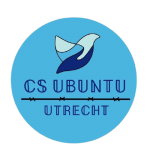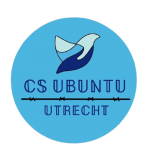Corruption and Protests in Russia
During January 2021, Russia’s landscape has been characterised by protests across the country. All over the country people came together, including many first-time protesters.
At first, it seems the protests were about the popular opposition figure and anti-corruption activist Navalny, who had allegedly been poisoned by the Russian government. The protesters demanded his release, as he was arrested the minute he arrived from Germany in Russia after recovering from his near-death poisoning. Navalny has been important in creating sentiments for change, appealing to the own desire of Russians for change. Although most Russians were not a big fan of Navalny in particular, they were shocked by how he has been treated by the government.
At the same time, Russians are also frustrated by rising prices and low pensions, the underfunding of public schools and hospitals and disenchantment of young people with the Russian government.
As you can end up beaten by police batons, get fired and fined, or even be criminal prosecuted, protesting in Russia is dangerous. People are scared to speak up and get prosecuted. By raising the stakes for simply speaking your mind, opposition is being repressed.
In response to the protest, Russian authorities argue that the protests were not permitted and posed a security threat. However, it was actually the other way around as police officers posed a security threat. Response to the protests
were characterised by intense police brutality, baseless criminal charges against organizers, allegations of unfair trials and inhumane treatment. Even the calling of Navalny’s team for a peaceful flashmob, in which Russians were
asked to light a candle in their backyard, led to the state warning that law enforcement could consider prosecuting the individuals taking part in it. According to Human Rights Watch, more than 10.000 people have been detained in
Russia. As a result of the arrest of many protesters, prisons are overcrowded and many people are suffering from inhumane conditions.Social media networks show how cells are overcrowded, there are no mattresses or blankets, and facemasks
are nowhere to be seen. This shows the violation of basic human rights of Russians.
According to Human Rights Watch’s Rachel Denber, since Putin’s inauguration in 2000, Russia has been more oppressive than it has ever been in the Soviet-era. Today, the courts, the legislature, and most media and security services are all controlled by the Kremlin. In 2019, the Supreme Court in Russia ruled that one of the oldest Russian human rights organizations – “For Human Rights” – should be closed. Other international human rights organizations and NGOs have been designated as prohibited and / or unwanted organizations by law. In addition, since Putin took office, at least 30 activists who opposed the regime have been killed. Due to the lack of transparency, there is a cautious assumption that this number is much higher.
With the banning of such organizations, the assassination of critics, and the disinformation spread by media through the Kremlin, human rights violations seem to continue uninterrupted. For example, between 2015 and 2018, between 1,590 and 1,881 complaints were filed annually about the abuse of authority. For example, torture appears to be a widespread practice. Only about 2% of these complaints were investigated, leaving an enormous impunity rate.
Amnesty International and Human Rights Watch report human rights violations in many areas: Violations of the Freedom of Expression, Freedom of Assembly, Freedom of Association, Freedom of Religion and Belief, Rights of the LGBTIQ + community and more. Dr. Calinaert, of human rights organization Freedom House, said the following about this: “His methods for suppressing civil society and political opposition have inspired other dictators, and his media manipulation has impacted most of Eurasia directly and extended to Europe and the United States”.
However, the current protests seem to be part of a larger hopeful development. Many young people, especially the group that grew up under Putin’s rule, are increasingly expressing its dissatisfaction. This shows that, despite the fact that they seem to be accustomed to nothing else, there is a call for recognition of their human rights. A ray of hope for the future.
For more information and ways to help, follow this link to our resource bank:



